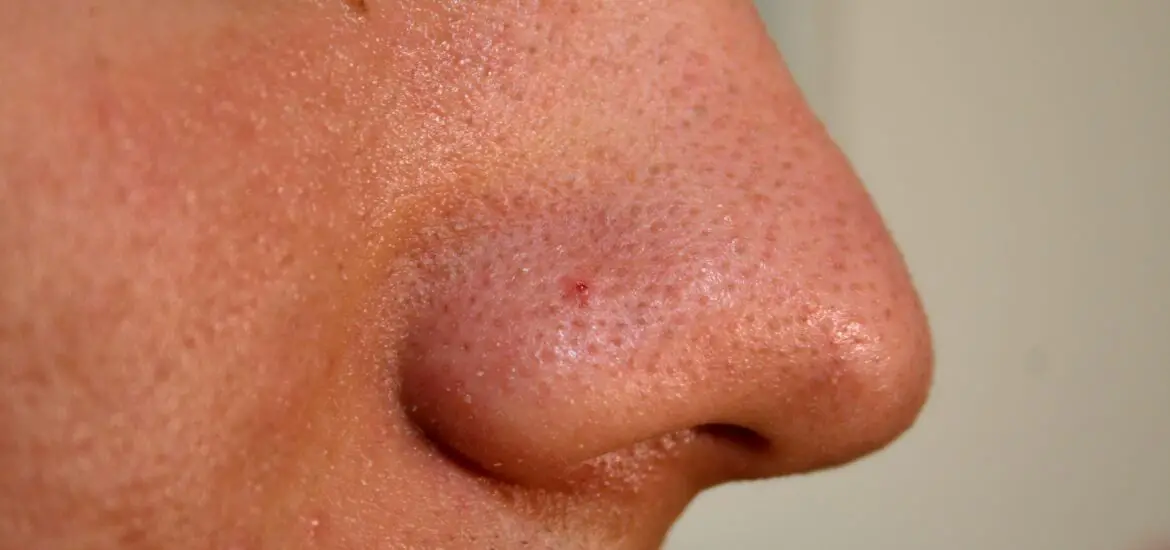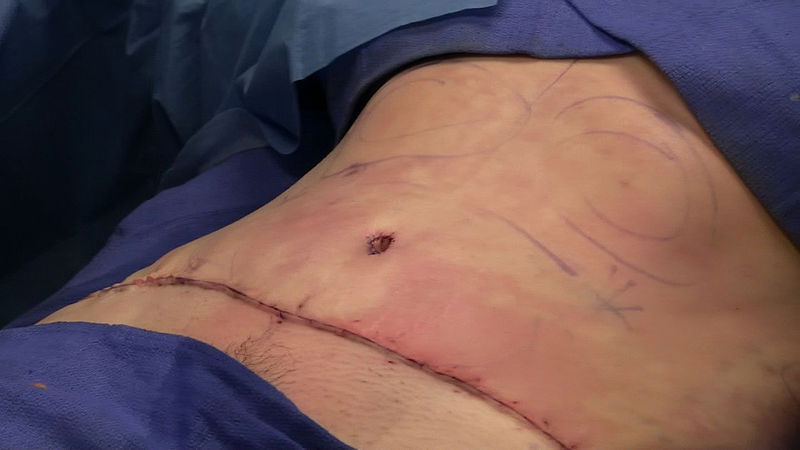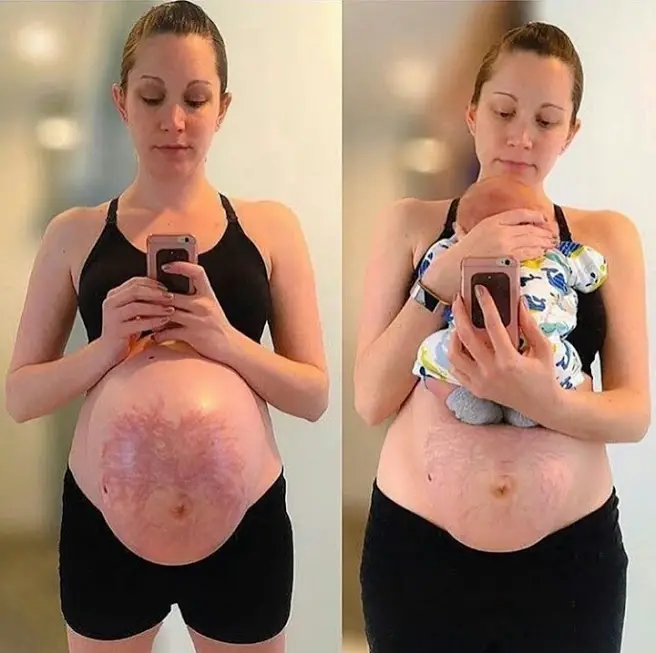Nobody likes to see blackheads on their skin, so everyone wants to remove them. But how do you treat your skin after blackhead removal? Let’s discuss it.

Table of Contents
What Happens to Skin After Blackhead Removal?
Your skin will look less puffy and have less visible pores. The look of the pores diminishes because there are no oil and dirt to swell them up and stretch the skin. As the days go by, the skin will gradually look smoother and healthier, with fewer appearances of blackheads.
It is crucial to treat the skin with the right skincare products to keep it free of blackheads. Also, keep your hands away from your face to avoid introducing dirt. Otherwise, you will have other blackheads appearing in the place of the old one.
How to Treat Skin After Blackhead Removal
How you treat your skin after removing blackheads will depend on your skin type.
Do the following to treat your skin after removing blackheads if you have oily skin:
Use acne treatments that contain benzoyl peroxide or salicylic acid. Products like that melt off oil and dirt from clogging the pores. Clay masks are also great at absorbing oil from the skin. They will make your skin look and feel matte, which means there is no excess oil to cause a breakout.
Use a cream or serum that contains retinoids to treat your skin. It dries up excess oil but leaves your skin susceptible to sun damage. So, try using sunscreen with a good amount of SPF whenever you use it and have to go outside.
Do the following to treat your skin after removing blackheads if your skin is oily:
Regularly hydrate your skin with a hypoallergenic moisturizer without scent. Drinking eight glasses of water or more a day will also add hydration to your skin and improve your general health. You can gently exfoliate your skin every day, but discontinue if you notice any negative reactions. Exfoliation removes flaky skin that has the ability to clog your pores and cause a breakout.
Properly clean your skin if you use makeup, no matter how light. But do not use harsh cleaners with strong chemicals; go for wipes that contain cucumbers or micellar water cleansers. They add moisture to your skin to alleviate irritation.
How to Clean Skin After Blackhead Removal
Dab a little toner on a cotton wad and clean the blackhead areas. Toners contain alcohol which dries excess oil and removes bacteria from the skin. So, if acne-causing bacteria spread on the skin, the toner will kill them and also condition the pores of your skin.
More importantly, avoid touching the sensitive skin area with your bare hands. Germs on your hand will transfer to the open pores and cause more blackheads or, worse still, infection.
What Happens to Hole After Blackhead Removal?
The resultant holes from removing blackheads tend to remain and slowly close of their own accord. It may take a while to close completely unless you apply some treatments.
How to Close Your Pores After Removing Blackhead
There are a few remedies to try if you want to close the holes after removing blackheads. But the safest place to start is using home treatments.
Home Treatments
Begin by washing your face with a gentle cleanser. Rub lightly and do not scrub, as scrubbing will inflame your skin and increase the appearance of your pores. Never use hot water when washing your face. Instead, use cool or warm water; hot water will irritate your skin and enlarge your pores. Afterwards, pat your skin to dry it. Wash your face two times every day, and incorporate it as part of your skincare routine.
Next, exfoliate and do it every day. Exfoliating your skin sloughs off dirt and leaves your pores clean, eliminating inflammation. But be gentle with the exfoliation, lightly scrubbing only once a day. And discontinue if your skin adversely reacts. Your dermatologist is in the best position to recommend the right product for your skin type.
Splash cold water on your face a few times a day. You are not washing it, only splashing the skin. You can also use a cloth soaked in cold water to clean your skin or hold it against it if you cannot splash your skin. The cold water causes the skin to contract, reducing the appearance of pores. Then, apply some moisturizer right after that, when your skin is still damp. It will keep your skin from getting dry.
Opt for non-comedogenic and hypoallergenic skincare and makeup products. They will not clog the pores of your skin nor irritate it. Read product labels to know which products contain hypoallergenic and non-comedogenic properties if you are unsure.
In addition, always use sunscreen if you are to be out under the sun. The same applies even if you are simply staying home or in a shade. Sun rays wear the skin out and make it look older. Older skin tends to have enlarged pores, so sun damage can keep the holes resulting from removing blackheads large.
Medical treatments
Use retinol to tighten the pores of your skin and prevent scarring. You can get a prescription from your dermatologist, but you will find it in many pharmacies around you. Apply it to your skin before going to bed. You will know if it is good for you if your skin does not become irritated. Otherwise, wash your skin, wait about thirty minutes, and try it again.
You can also try salicylic acid or alpha-hydroxy acids. Salicylic acid reduces inflammation and controls oil production, reducing the chances of a breakout. You can either use a cleanser or an acne facial wash that contains salicylic acid.
Alpha-hydroxy acids or AHA can dry blackheads and reduce the appearance of pores. So, get a prescription from a dermatologist or get an over-the-counter type. Use it on the blackhead holes and see if it shrinks them.
Laser treatments can also reduce the sizes of pores on your skin because they encourage the production of collagen. When your skin produces collagen, it becomes plumper and more elastic. Another option is a surgical procedure, but only if you have persistent blackheads that leave deep holes. Your dermatologist is the ideal person to recommend such a procedure.
Do note that the skin’s enlarged pores will reduce in size with time. Having enlarged pores from removing blackheads is normal and nothing to worry about unless they become infected. Otherwise, take care of your skin and allow time to do the rest.
Click here to read these interesting articles…
Skin After Birth [Problems & Remedies]
Skin After Chicken Pox [Problems & Remedies]
Skin After Cryotherapy [Problems & Treatments]
Skin After Dermaplaning [Care/Problems & Remedies]
Skin After Dermabrasion [Care/Problems & Solutions]
Nose Skin Peeling After Blackhead Removal – What to Do
Avoid using hot water on your peeling skin. If you must wash it, use lukewarm or cool water. Then, apply moisturizer to hydrate the skin. Dryness causes peeling skin, so keeping the skin hydrated lessens the peeling. Do not try to pick it; you may worsen it or cause an injury. The peeling will stop with time, but see a dermatologist if you are concerned or if it increases.
Is Blackhead Removal Bad for Your Skin?
The occasional blackhead removal is not bad. You may not be used to having blackheads, so you may be tempted to pick them when you see a few. Doing that is not harmful to your skin. But making it a habit can damage your skin. Avoid picking blackheads if you are prone to have them; you risk having pits and acne scars if you do.
Apart from scarring, you could cause more blackheads and pimples to appear. Your skin will become inflamed and irritated that way, worsening its appearance. Worse still, you could infect your skin if you keep picking at them with your bare hands.
However, you can have the blackheads extracted by a professional. People who have a lot of blackheads or a persistent breakout should seek medical help for extraction and treatment. That way, all the dirt and oil are removed, and your pores are not infected.
Bottom Line
Blackheads are usually tempting to touch because they are easy to remove. Besides, we want clearer facial skin. But it is best to see a dermatologist so that your skin after blackhead removal will not scar or become infected.
Nevertheless, there are ways to remove the blackheads cleanly at home without inflaming your skin or enlarging the pores. Your dermatologist can give instructions and recommend care tips after removing the blackheads.

